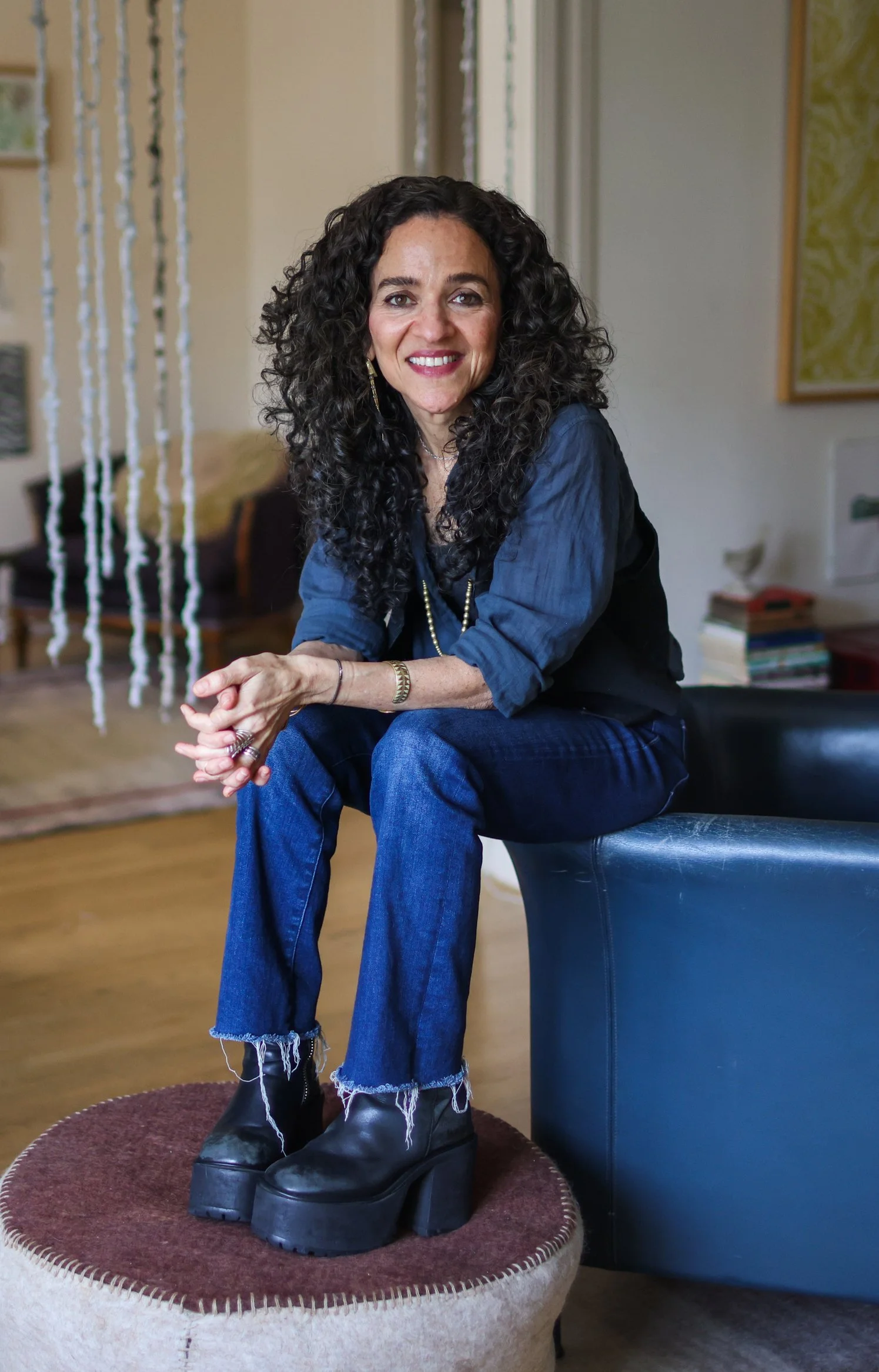Award-winning journalist Lissa Soep makes her literary debut with OTHER PEOPLE’S WORDS, a mesmerizing tribute to friendship as a love story and the power of language to keep us in conversation with the people we’ve lost. Blending memoir and scholarship, prose with fragments of letters, postcards, poems, voicemails, and other texts, the book will resonate with anyone who loves language and has had to say good-bye, which is to say, all of us.
What people are saying
“Just magnificent. We don’t just whisper into each other’s ears; rather we speak to, through, for, and as each other. This book grapples beautifully with that truth and is genuinely enlightening.”
–Rob Delaney, author of the New York Times bestseller A Heart That Works
“Remarkable . . . A profound meditation on the first-order experiences of life: friendship, love, death . . . This is a book to help you remember what is meaningful in this life.”
–Alexis Madrigal, author of The Pacific Circuit and co-host of KQED’s Forum
“This book will fundamentally change how, and for whom, you speak.”
–Cyrus Dunham, author of A Year Without a Name
“One of those books that changes you forever.”
–Peggy Orenstein, New York Times bestselling author of Unraveling
“Shows us how we carry within us the language of loved ones who are gone, and how their words can be portals.”
–Next Big Idea Club “Must-Read”
“A treasure map to meaning in life’s hardest moments . . . shows us that love lives on forever.”
–Laurel Braitman, New York Times bestselling author of What Looks Like Bravery
“Voices of our loved ones remain with and sustain us in a sort of afterlife of their own.”
–Stanford Magazine “What to Read Now”
“Engaging and deeply thoughtful.”
–San Francisco Chronicle
“Moving . . . Anyone who has lost a loved one and still seeks their voice will appreciate.”
–Booklist
“A hypnotic experience that should not be missed.”
–Audiofile
“Friendship is not peripheral to the core parts of our lives. Friendship is at the center.”
–Nicole Fleetwood, MacArthur Fellow and author of Marking Time
“This book is a way to preserve life, and to remember.”
–New York magazine’s E. Alex Jung, Vox Media book club conversation series
“A genuine, highly personal, thoughtful memoir and memorial.”
–Kirkus
“I can’t put it down dammit.”
–Caroline Paul, New York Times bestselling author of The Gutsy Girl and Tough Broad
Hi I’m Lissa!
I’m a writer, editor, producer, and scholar. OTHER PEOPLE’S WORDS is more personal than anything I’ve written before, but its driving questions have captivated me for as long as I can remember: how we love and learn, lose and find one another through language, and how our words can both serve and betray us when we need them the most.
I started a career in journalism more than twenty years ago after I finished a PhD at Stanford, turned down an academic job, and joined Youth Radio, a Peabody Award-winning nonprofit newsroom that served as NPR’s youth desk. I created the organization’s NSF-backed research division and produced and edited hundreds of stories including investigations that advanced reforms in criminal justice, child welfare, and education policy. In 2020, I joined Vox Media as a senior editor for audio, where I contribute to some of the nation’s leading podcasts and run a learning and speaker series for aspiring and veteran audiomakers. I’m editorial lead on Language, Please, which won an Anthem Award for its dynamic style guidance used by journalists and storytellers of all kinds to thoughtfully cover evolving social, cultural, and identity-related issues. The MacArthur Foundation backed my latest experiment to imagine a new literary experience: Bonus Chapter brings excerpts from nonfiction books to life with voice, sound design, and score.
Other People’s Words brings my work full-circle. Back when I was writing my dissertation a million years ago, I leaned on the work of Russian linguist Mikhail Bakhtin. He taught me to listen for dialogue not only between voices, but within voices. Then, decades later, two beloved friends of mine died. Suddenly, Bakhtin came rushing back to me; his philosophy felt vital, a way to unlock the life-force of language in times of missing. And so I made him a kind of presiding spirit in a story tracing the afterlives of voices left behind by loved ones who are, at once, with us and gone.


